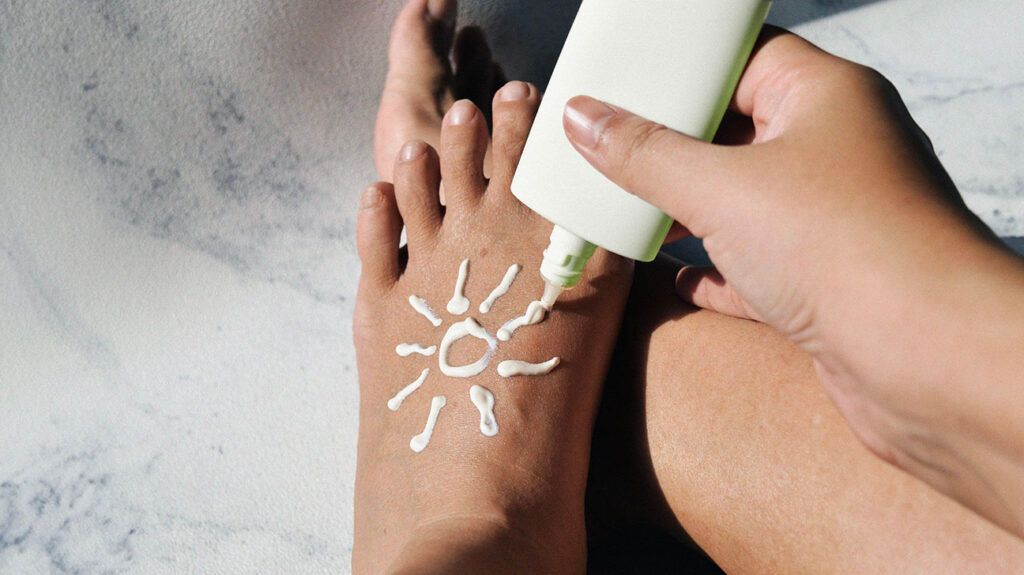Skin naturally becomes thinner over time. It may also occur if a person is applying topical corticosteroids. Retinol may help thicken skin for some people.
Although it is not possible to prevent skin aging, a person can also take steps to protect the skin from damage and improve general skin health.
Read on to learn more about the causes and symptoms of thin skin, possible treatments, when to contact a doctor, and more.

Skin is naturally thinner on some parts of the body. The skin on the eyelids is only 0.5 millimeters (mm) thick, while the skin on the heels can be up to
The skin is made up of
- The hypodermis is the innermost layer, made up of tissue, fat, and sweat glands.
- The dermis is the next layer, which contains the nerves and blood supply.
- The epidermis is the outermost layer of skin, which is a barrier against dirt and bacteria.
Thin skin means that the epidermis is not as thick as it should be. The hypodermis may also have less fat, which results in this layer being thinner, too.
By itself, thinner skin should not cause any medical problems. However, a person
If a person has thin skin, it can look more transparent and they might be able to see veins, bones, or tendons more clearly.
Thin skin can be easily damaged. After minor injuries, a person may notice that their skin bruises or tears.
A loss of fat from the hypodermis causes the skin to look less plump or full, which can make the skin appear thinner.
Learn about the difference between thin and thick skin.
Aging commonly causes thin skin. Thin skin is a natural part of getting older, alongside furrows and wrinkles, less skin elasticity, and skin that is dry or easily damaged.
Environmental and other factors can also cause skin to become thinner. These can include:
- Sunlight: The sun’s UV rays can play a significant role in thinning the skin over time. UVA and UVB rays can kill or damage skin cells.
- Topical corticosteroids: Applying topical corticosteroids can cause the skin to become thinner.
Topical corticosteroids are only loml,jikely to cause thinning if a person uses them for an extended period. It is essential to follow instructions on how to use the medication.
While it is not possible to reverse thinning skin due to aging, thin skin due to corticosteroids should return to its usual thickness once a person has stopped using the medication.
A doctor will typically be able to diagnose thin skin based on its appearance.
If a person has any lesions or other skin changes that may indicate an underlying condition, the doctor may order tests to determine the cause.
Topical retinol or retinoids, which are derived from vitamin A,
According to
However, a
Thinning skin occurs naturally with aging, and it is generally not possible to prevent it. However, it might be possible to slow down the rate at which skin becomes thinner.
Taking collagen supplements at a doctor’s advice
Taking steps to look after the skin is also beneficial to the overall health and appearance of the skin. These can include:
- wearing SPF 30 sunscreen or higher that protects from both UVA and UVB rays
- wearing long sleeves and a long skirt or trousers when outdoors
- choosing a hat that will shade the neck and face
- sitting in the shade or spending time indoors during the hottest part of the day
- moisturizing the skin regularly to prevent dryness and damage
- avoiding smoking
While thin skin is a natural part of aging, a person may wish to contact a doctor for advice if their skin bruises or becomes damaged easily.
Some medications can cause thin skin. A doctor can advise on whether to stop certain medications and offer possible alternatives. It is important to continue taking any medication a doctor has prescribed until they advise otherwise.
Here are some frequently asked questions about thin skin.
Can thin skin be thickened?
Some
How can I make my skin stronger and thicker?
Skin thinning is a natural part of aging, so it may not always be possible to make it thicker. However, taking steps to protect the skin can help protect it from damage. These can include wearing SPF 30 sunscreen or higher, keeping the skin covered when spending time outdoors, moisturizing regularly, and avoiding smoking.
What medication causes thin skin?
Topical corticosteroids can cause thin skin. Once a person stops applying corticosteroids, the skin should restore to its usual thickness. It is important to follow the instructions a doctor provides when applying corticosteroids.
Aging is the main cause of thin skin. It may also happen if a person uses topical corticosteroids.
Topical retinoids may help thicken thin skin, though more research into this is necessary. Collagen supplements may help slow down the rate at which skin becomes thinner, though it is not possible to completely prevent skin thinning as a result of aging.
A person can contact their doctor for advice if they have concerns about thin skin or the health of their skin in general. The doctor can advise on steps a person can take to improve their skin health, as well as diagnosing any potential underlying causes for any changes in a person’s skin.
